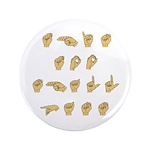It used to be that you would do a search on a relevant subject and get blog posts, forums posts, and maybe a couple of relevant companies offering the product or service. (And if you wanted more information on said company you could give them a call and actually talk to a real person about said service) You could even trust amazon and yelp reviews. Now searches have been completely taken over by Forbes top 10 lists, random affiliate link click through aggregators that copy and paste each others work, review factories that will kill your competitors and boost your product stars, ect… It seems like the internet has gotten soooo much harder to use, just because you have to wade through all the bullshit. It’s no wonder people switch to reddit and lemmy style sites, in a way it mirrors a little what kind of information you used to be able to garner from the internet in it’s early days. What do people do these days to find genuine information about products or services?
Extensions help a ton. Some of my favorites:
Block or Highlight Search Engine Results - Does what the name says. When you run a search on Google or DDG or whatever engine you use, and you get a result from a shit website, add it to the filter and you’ll never see that trash again. I filter out the following trash: chegg, timesmojo, coursehero, numerade, forbes, instagram, and pinterest. I’ve only been using this one for a little bit, so I expect that list will grow a LOT, but even with just those removed from my search results, HOLY HELL has the quality of my searches has increased. This one is probably the most relevant to OP’s question.
Dictionary Anywhere - For vocab. Double-click any word on the web, and a little text bubble pops up with its definition - works on words in that bubble too, for when you run into shit like “Redundancy: the state of being redundant.” -_- double click the “redundant” in the bubble to get a second bubble with a more useful definition. (doesn’t happen often, but it’s a cool feature, so worth calling out)
Fandom Enhance - For videogames, since every game wiki is on Fandom for some reason. This extension scrubs a LOT of the unnecessary clutter from the page.
Recipe Filter - Works with recipe websites. Scrubs out the 528 page life story from the author and reduces it down to just “Grilled cheese: bread, cheese, butter. Put butter on two pieces of bread. Put a slice of cheese in between. Put it on a griddle at 250 degrees for 2 mins. Flip it over, two more mins. Eat that sum’ bitch.” ✔
Youtube-shorts block. Youtube shorts NEVER have good content - get that TikTok shit outa here.
uBlock Origin - This one’s a HEAVY lifter for taking the trash out of the internet. This will improve both the quality of information on screen by removing a TON of sketchy shit, and make your browsing a lot safer by filtering out malicious links. If you’re not already using uBlock and take nothing else from this post, TAKE THIS ONE.
…that’s pretty much it on my end, but there’s a lot of other useful extensions out there. If anyone else has one to add, by all means let’s keep this ball rolling!
Well damn. Thank you. Saving this! I have Ublock origin already. I’m excited about the other suggestions too!
Pinterest is half the fucking google image search. Bye! And the other half is shopping ads. Google can kiss my grits.
I wish kbin had a save feature; I’m replying so I can find this later 😆
Should also be said that for various edge cases where a extension doesn’t exist, uBlock’s element selector function lets you get very granular with filtering things. If you know a bit of html/css, you can get creative with it and consistently hide just about any element you like across many different sites.
For example, recently I’ve been on a quest to de-rating all my favorite media sites and Google results, etc. No more wayward rotten tomatoes, metacritic, or imbd scores when I want to look up info on media unless I go looking for them on those websites. No addon that I’m aware of exists solely for this purpose, so I’m basically using uBlock to do it by using the element selector any time I see them. Some sites make this tricky, and any adjustment to the design of the page could break it, but the joy I get from being able to curate my web experience to exactly what I want to it to be can’t be understated.
Using uBlock to block-element to block a prompt asking me to disable my ad blocker is one of the best feelings ever.
There’s a list for that I believe
I like Ghostery too. It blocks cookies and trackers so I can just search for something without being bombarded by ads for it later.
Neo: What are you trying to tell me? I should ignore ad content?
Morpheus: No, Neo. I’m trying to tell you that when you’re ready, you won’t have to.
Don’t stick to one channel. Don’t get your news from social media, because social media is an echo chamber.
Use an RSS feed aggregator app to consolidate boring news articles from multiple boring publications. This will give you an even spread.
You will see the same news stories from different news outlets with different spin. You will quickly come to understand various news publishers biases and how extreme they are.
Always go into an article with an understanding of the publishers biases that might be at play.
If you must do the news on social thing… Only use social to discuss stories you already understand to some degree. Or as a place to research the news topic deeper.
For the most part, just use social to hang with your communities… you know… like a social network :)
Definitely. You’d love Allsides.com btw. Gives great info on how a topic is covered across the spectrum and summarizes them really well. There’s an RSS feed for it too.
Back in the day, Wikipedia was so neutral that they had people arguing how to write articles from a non-human POV. Yes, certain articles get political, but that is when the talk page arguments, counter-arguments, and linked ARBICOM evidence pages give you a good lesson on what people think are fact and opinion. I haven’t been a editor for a while, is wikipedia not a hotbed of nerds who have to be in alignment with the facts regardless of what current political discourse says is right nowadays?
so neutral that they had people arguing how to write articles from a non-human POV.
Academics have since acknowledged the impossibility of achieving this fantasy “unbiased” perspective.
give you a good lesson on what people think are fact and opinion.
This has been such an incredible change to Wikipedia’s work, allowing dedicated spaces to talking about rhetoric and talking points for readers to learn.
facts regardless of what current political discourse says is right
Yeah, more or less. We are always free to check the sources, which is also a part of what Wikipedia nerds debate - what is the best resource to link to for those who need more info?
I mean Wikipedia is not without a shitload of bias. Try searching democracy in China or homelessness in the USSR.
Take the contrast between the pages democracy in China vs democracy in the US. The Chinese page uses shit like oxford and Cambridge to call China an authoritarian one party state. Which: okay, but the framing of this is incredibly negative given the same argument could be for the US. Notably, the US page (redirected from democracy in the US) simply outlines US government structure and function.
The Chinese page condemns the current government of China as being antidemocratic while unironically citing the government that lost the civil war to the Chinese communist party instituted martial law for 38 years in Taiwan. Yes, the current Chinese government does not allow other parties to run candidates (as far as I understand it) but given what the people experienced before this government, its not that shocking that the vast majority of the population believes they live in a democracy.
Long windedly, Wikipedia is also super biased and corrupt.
Wow are you saying Wikipedia is biased and corrup because they didn’t inaccurately call the U.S. a one-party Authoritarian state?
The “Democracy in China” page explicitly states at the top that i’s going to be an overview of political concepts and that there is on-going debate.
Homelessness in Russia does have a section on Soviet Union, talking about “Densification” following the October Revolution ie. Forced re-housing into small state owned flats.
Criticism of the US is indeed found directly in the same paragraph about how our government works:
It has higher levels of incarceration and inequality than most other liberal democracies, and is the only liberal democracy without universal healthcare
Open your eyes, Wikipedia is showing how it can be an incredibly dense and informative resource.
The debate is from western scholars and from a western perspective.
If you are going to call communist party control of elections authoritarian and undemocratic, then two capitalist parties controlling all elections in the US isn’t really functionally different. I’m not a China Stan. My point is that even trying to research how Chinese government and politics function using Wikipedia is exposing one to western propaganda.
Also, I think it should be fairly obvious that the western state and intelligence wings clearly are influential on Wikipedia.
Calling the CCP Authoritarian and Undemocratic / Illiberal is accurate. They disappear those who protest or object.
Having a two party, first past the post, electoral college system in the US is less democratic than other Liberal Democracies. And wikipedia has links acknowledging that.
Researching China is always going to be exposing oneself to Western Propoganda. Why? Because Chinese Propoganda is the direct source we have to go by. We are unsure 100% how it works, and must try to read China state actions, and makr educated guesses - because of China’s obfuscation of the truth.
One of the longest running ARBICOM cases is about Tawain. The first one ended, and then another one pops up literally on naming conventions of geography in Tawain. It is like a unmovable obstacle vs. an unmovable obstacle with endless chineese editors vs. endless wikipedia burocracy.
I would hate to see what the mandarin version of Wikipedia has to put up with.
I go on 4chan and insult the product/thing/person that I need info on. Then I wait, rubbing my uhhh hands like a perv behind the tree.
I guess rule 7 (Anon is still able to deliver) applies here
I would give you lemmy gold for this comment if it existed…
I think it’s becoming a lost art … but basically, you need to go by reputation. Pick well known sites that you trust, compare what they say about the subject, don’t even base your opinion on just one random blog article or tweet / reddit / lemmy post.
For some, Wikipedia is trustworthy since it (usually) cites its sources and has a pretty good track record, while for others it’s not to be trusted, cause anyone can edit it. In the end it’s up to you what you trust. Another example: The CDC (in the US) can be considered trustworthy for health information, being an official government agency, but many also don’t trust it as it has become more politicised and so, biased. Again, you decide what to trust, and always consult at least two trusted sources, more is better.
For product reviews, I simply don’t pay much attention to the star rating, but instead, read the actual reviews, and sort them chronologically so I read the most recent ones. Check that they are actually reviewing the product / service you think they are, as there are ways to get good reviews then “switch” the product listing (amazon) and other similar tricks. Check if it seems plausible, level-headed, or if it’s just someone being angry, or likely fake. Like I said, it’s an art, not a science. Sometimes, you have to actually buy the product / service and judge for yourself, then compare your experience with the reviews, and you’ll learn to tell the truthful reviews from the fake or unreliable.
Try to search for something that has been in the News. Even if that news article is NOT what you want… It’s going to be the only thing offered . Over and over and over.
Sadly, most of the news articles from “trusted” sources, are put there to steer the dialogue in a specific way. You can’t talk about certain things in the news and some articles are specifically put out there to raise awareness of certain products. Read Noam Chomsky’s Manufacturing Consent for more info.
I do better via DuckDuckGo than Google these days.
I follow some reviewers on YouTube, Project Farm is a great one.
If I want a useful ad, I just wait on instagram to spy on me and actually give me good local ads that are useful
And everyone gave me shit for keeping my feedly account.
The Reader died, but the feeds do live on, between mastodon, lemmy and feedly I got plenty to read.
Keep a log of anything you do successfully find that you may need later.
I’ve started bookmarking anything I do find genuinely useful as there’s a chance that the a similar search would yield different results that wouldn’t help at all.
I’ve also installed archivebox on one of my home lab pcs to grab a snapshot of any sites and pages that I want to keep (you never know if you’ll go back and it’s gone).
Retaining good information for yourself is just as important on the web now given all the bot spam and affiliate laden shit out there that Google and Bing seem to be promoting these days.
Research journals along with a university based Library search engine to find them.
Wiki
deleted by creator
For products I’ll immediately start with Project Farm on YouTube and see if he’s covered the thing I’m interested in. If he hasn’t I’ll try /r/buyitforlife. I’ll look on multiple sites of retailers I’ve heard of for reviews of products from a manufacturer I’ve heard of (no “WEEJIANGBEST” on Amazon) and give conditional trust to ratings averaged from 3000 or more individual reviews. If I’m feeling wildly thorough I might visit Fakespot to vet those reviews. If the product is expensive, I might pay for a month of access to Consumer Reports. If it’s really expensive, I will pay for Consumer Reports.
For services, those are local to me, so I tend to rely on fuzzy word-of-mouth stuff. I might look in the subreddit for my city, but tend more toward simply knowing the reputation of what’s around me.
Edit: for local businesses, I also look them up on the Better Business Bureau.








